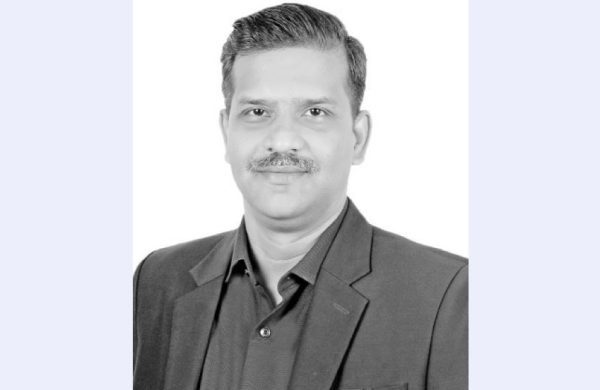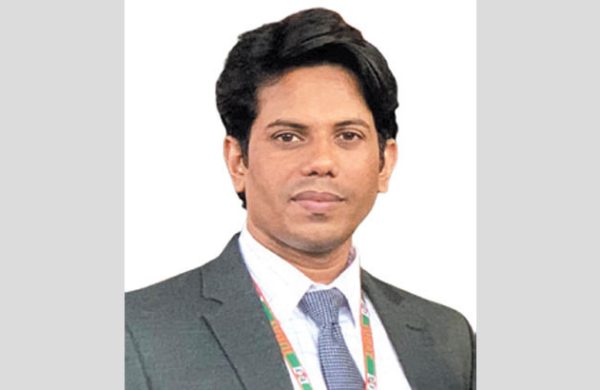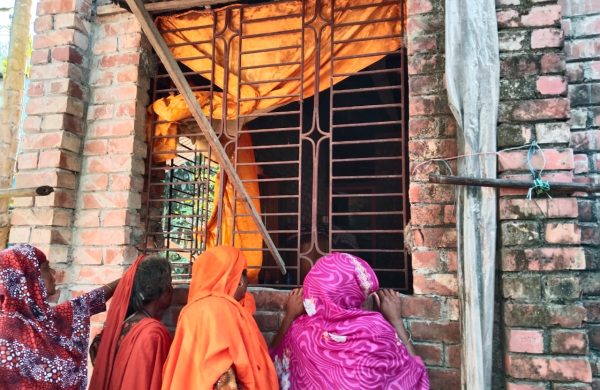No Place for Inhumane Politics
- Update Time : Monday, July 14, 2025

—Sayed Khan—
The current political landscape in Bangladesh has become so entangled that morality and people-centred politics are rapidly losing ground. Murderers, rapists, extortionists, and corrupt individuals are not only undermining law and order but are also eroding the social and political stability of the country. Violence against women, abuse of children, murders, enforced disappearances, extortion, and terrorising innocent citizens are not isolated crimes—they are hollowing out the very fabric of our society.
Simultaneously, mob violence in the name of “instant justice” is on the rise, replacing rule of law with a culture of revenge.
To build a civilised, humane, and safe society, we must unite in resisting such crimes and violence. Taking the law into one’s own hands is never the solution. Rather, the rule of law, justice, and social awareness are the sustainable answers. A society where the weak are unsafe cannot survive.
Political parties must prioritise internal reform, accountability, and ethical leadership. Without this, the political system will continue to decay.
We must remain vigilant against the growing influence of inhuman actors in politics. A murderer can never belong to any political party—their only identity is that of a murderer. If political platforms begin to excuse such crimes in the name of partisanship, it signals not democracy, but a reign of terror.
Too often, we witness criminals being divided into “ours” and “theirs.” This not only deprives victims of justice but also encourages impunity. Politics cannot be a haven for bias. If we cannot rise above partisan interests to punish wrongdoing, we risk becoming a fractured society. If political parties fail to expel criminals and corrupt figures from their ranks, they will lose public trust. The contamination of politics cannot be prevented otherwise.
Unless political parties cleanse themselves, they cannot claim to be accountable to the people—thus weakening the very foundations of democracy. There can be no more shelter for extortionists, looters, profiteers, and black-market operators. Those who used political labels to amass illicit wealth while neglecting public welfare must be permanently expelled. These are the characters that erode public trust, taint politics, and weaken the state.
A cleansing campaign must be pursued with courage and integrity. Without political reform, justice in society is unattainable. We must boldly declare: there is no place for the inhumane in politics. Those who reject the values of humanity, justice, empathy, and democratic spirit are not politicians—they are merchants of power and violence.
BNP Acting Chairman Tarique Rahman has repeatedly stated, “If the BNP behaves like the Awami League, it will meet the same fate.” This is not merely a criticism of a rival party; it is a harsh self-reflection and a call for moral reform. The repression, corruption, politicisation, and anarchy that flourished under the Awami League’s rule must not be repeated—otherwise, the outcome will be the same: public trust eroded and political crisis deepened.
Mistakes are not uncommon in politics. But the most admired leaders are those who have made the fewest mistakes and learned from them. The most criticised figure in Bangladesh’s political history is Sheikh Hasina. In contrast, Tarique Rahman has stated, “People are now much more aware. They are ready to trust us—meaning the BNP. If anyone from our party damages that trust, I cannot defend them. I will not offer them shelter.”
No one has the right to undermine the BNP’s legacy. Its contributions to multiparty democracy, economic reforms, women’s empowerment, freedom of speech, and rural development are undeniable. Forgetting this history would weaken the foundation of future politics. Honest and capable leadership must step forward to institutionalise a culture of integrity and accountability.
When education is devoid of values, culture is driven by consumerism, and society worships greed, criminals do not merely commit crimes—they control systems. They become the leaders, the contractors, the owners—while the poor become the victims. In Bangladesh today, crime is increasing—rape, mugging, extortion, teen gangs, syndicates, and drugs—all flourish under state shadows. The government remains silent, the legal system slumbers, and the public lives in fear. Addressing these issues requires deep structural reform of the individual, society, and the state—not just law enforcement.
The only way forward is inclusive politics, economics, and culture. Bridging the gap between rich and poor, ensuring education, employment, and safety for all—these are the keys. Political inclusion must guarantee freedom of expression and administrative accountability. Cultural inclusion must build compassion, respect for women, and moral awareness in the youth. Developed nations have shown that where good governance exists, crime does not thrive. The same applies to Bangladesh. But first and foremost, the country needs an elected government.
Building a just, inclusive, and humane political system is everyone’s responsibility—especially political leaders. It is our sincere hope that all political parties, including the BNP, learn from past mistakes, cleanse themselves from within, root out criminal elements, and foster a leadership committed to democracy and public welfare. Otherwise, history will judge them harshly.
Politics should be a space for justice, humanity, dignity, and rights. There is no room for murderers, rapists, looters, and terrorists. The time has come to say it out loud: there is no place for the inhumane in politics.
————————————————————————————-
Author: Journalist and political analyst, Organising Secretary, DUJ



















